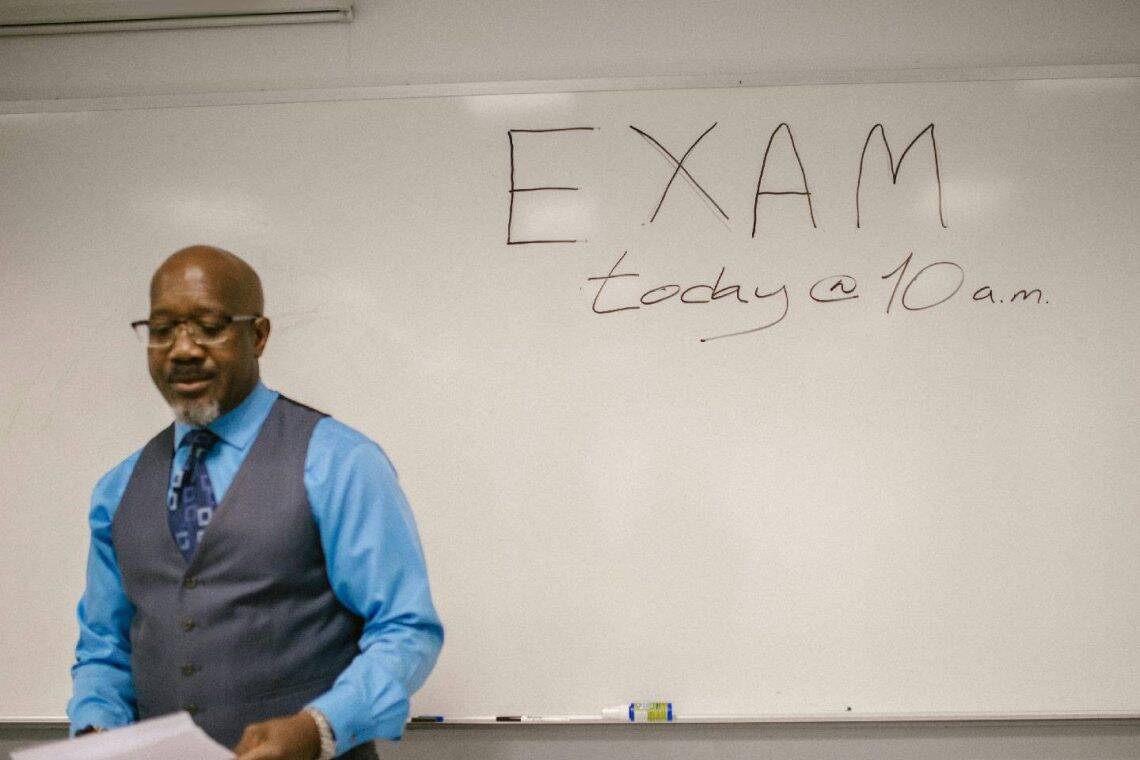As the 2025 matric examination season approaches, South Africa’s education landscape is buzzing with anticipation. Umalusi, the Council for Quality Assurance in General and Further Education and Training, has confirmed that the national system is fully ready for the upcoming exams. This announcement comes amid heightened efforts to combat fake news and ensure exam integrity, setting the stage for over a million candidates to showcase their knowledge fairly. With exams starting at the end of October, stakeholders are focused on maintaining credibility in a digital age rife with misinformation.
The briefing, held on October 15, 2025, in Pretoria, highlighted collaborations between public and private assessment bodies. This year’s emphasis on technological safeguards and parental involvement reflects a proactive approach to challenges like cheating and false information. Globally, parallels in standardized testing offer valuable lessons for maintaining education standards worldwide.
Umalusi’s October 15 Readiness Briefing
Umalusi’s CEO, Dr. Mafu Rakometsi, led the media briefing, affirming that the system is primed to administer the 2025 end-of-year national examinations. The audit, spanning from August 11 to October 9 across all nine provinces, evaluated candidate registration, personnel training, question paper security, and irregularity management. Despite minor, non-systemic concerns, Umalusi expressed satisfaction with overall preparedness, ensuring exam integrity is upheld.
Over one million candidates are registered across four key assessment bodies: the Department of Basic Education (DBE), Department of Higher Education and Training (DHET), Independent Examinations Board (IEB), and South African Comprehensive Assessment Institute (SACAI). The National Senior Certificate (NSC) sees 790,144 full-time candidates, with DBE handling the majority at 766,543. Additional qualifications like the National Certificate (Vocational) Level 4 and General Education and Training Certificate: Adult Basic Education and Training (GETC: ABET) contribute to a diverse cohort ready to test their knowledge.
The exams will be conducted at approximately 9,400 centers, categorized by risk levels based on past irregularities. High-risk sites have enhanced mitigation strategies. All question papers are externally moderated and approved, with secure printing, packaging, and distribution protocols considered robust by Umalusi. Marking processes are staggered from mid-November to December, using trained markers and double-entry systems to ensure accuracy.
Assessment Bodies Working Together
Collaboration among assessment bodies is a cornerstone of the 2025 matric season’s readiness. DBE oversees most NSC candidates, DHET manages vocational and adult education qualifications, while IEB and SACAI cater to independent schools, ensuring standardized quality across the board.
Umalusi confirmed that all bodies have structures for handling irregularities, in line with national regulations. Personnel, including invigilators and markers, have undergone rigorous training. Concessions for candidates with special needs promote inclusivity. This unified approach streamlines administration and bolsters public confidence in the exams.
Recent updates include the internalization of certain vocational exams and the phasing out of outdated programs, aligning with government gazettes. These changes modernize the system, focusing on skills relevant to South Africa’s evolving economy.
Technological Safeguards Against Cheating
Umalusi has prioritized advanced measures to prevent cheating. Risk assessments classify exam centers, with high-risk locations receiving intensified monitoring, including potential surveillance and strict invigilation. Secure value chains for question papers—from printing to distribution—use classified security technologies to deter leaks.
Dr. Rakometsi emphasized that examination fraud is a criminal act that undermines credibility. Discussions around penalties, such as 3–5 year bans, highlight the seriousness of cheating. Awareness campaigns also address ethical AI use in exams.
These strategies, combined with on-site verifications during writing and marking, ensure a level playing field. Ongoing oversight, including result standardization and approval, further safeguards against irregularities.
Guiding Students and Parents
Parents play a pivotal role in the matric journey. Experts advise balanced study routines, adequate rest, and proper nutrition to combat stress.
Students are encouraged to minimize social media use during exams to avoid distractions and misinformation. Parents should verify information through official channels like Umalusi or DBE.
Emotional support is key—celebrate small wins, foster resilience, and remind students that exams are milestones, not measures of self-worth. Counseling services and study guides can support preparation.
Global Perspectives: Lessons from Other Systems
Globally, standardized testing faces integrity challenges. Digital glitches and debates around test fairness in other countries highlight the need for reliable, transparent systems. Insights from international education frameworks, including collaborative alliances, offer benchmarks for ethical assessment and exam security.
Looking Ahead: Fair and Credible Exams
As the 2025 matric exams begin, Umalusi’s preparations promise a credible and smooth process. By addressing fake news and leveraging technology for integrity, South Africa sets an example. Drawing on international insights, the nation continues to evolve its education system, ensuring every candidate has a fair opportunity to succeed.
